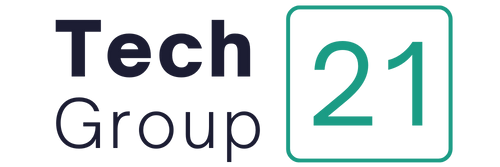In the modern digital landscape, artificial intelligence (AI) has evolved to become a cornerstone of numerous business operations and strategies. As AI technologies become more ingrained in everyday business functions, organizations must navigate the complex terrain of governance, compliance, and security—especially in cloud and hybrid environments. AI governance ensures that AI systems operate responsibly and ethically, while compliance ensures that these systems adhere to legal and regulatory standards. In this article, we will explore the challenges and best practices for AI governance and compliance in cloud and hybrid environments, with a particular focus on how organizations can enhance their security posture, with an emphasis on Noma Security.
The Rise of Cloud and Hybrid Environments
Cloud and hybrid environments have revolutionized how businesses approach IT infrastructure. These environments allow organizations to scale resources quickly, manage data more efficiently, and leverage sophisticated computing power that was previously out of reach. Cloud environments, where computing resources are hosted on remote servers, and hybrid environments, which combine both on-premise and cloud-based systems, offer flexibility and agility. However, they also introduce new challenges, particularly in the areas of security, compliance, and data governance.
AI, when integrated into these environments, can significantly enhance business capabilities, from automating workflows to providing advanced analytics. However, deploying AI at scale in these systems requires strict governance frameworks and compliance mechanisms to ensure that AI technologies are used responsibly and in alignment with industry standards and regulations.
Why AI Governance Matters
AI governance refers to the frameworks, policies, and processes that ensure the ethical and responsible use of AI technologies. It covers a wide range of concerns, including bias reduction, accountability, transparency, and data privacy. In the context of cloud and hybrid environments, AI governance takes on an added layer of complexity due to the distributed nature of these systems.
- Bias and Fairness: One of the primary concerns in AI is the potential for bias in algorithmic decision-making. Bias can emerge if AI systems are trained on biased datasets or if the algorithms themselves are flawed. In cloud and hybrid environments, data may be sourced from multiple regions, leading to potential variations in data quality and fairness. AI governance frameworks must ensure that AI systems are transparent, fair, and capable of mitigating biases.
- Accountability: In complex environments where AI models are trained and deployed across distributed systems, it can become difficult to determine who is responsible if something goes wrong. Ensuring clear accountability for the outcomes of AI systems is critical. This involves establishing traceable processes and decision logs, especially when AI decisions have significant business, legal, or ethical implications.
- Transparency: With AI being applied in everything from customer service to financial services, transparency is essential. Organizations must be able to explain how AI models work and how decisions are made, especially in regulated sectors. This level of transparency is vital in both cloud and hybrid environments, where AI models may be exposed to various external influences, making it harder to track their behavior.
Data Privacy and Security: AI models often rely on large datasets to operate, and many of these datasets contain sensitive or personally identifiable information (PII). In cloud and hybrid environments, data can be stored and processed across different locations, which increases the risk of data breaches or unauthorized access. Compliance with data protection laws such as the General Data Protection Regulation (GDPR) or the California Consumer Privacy Act (CCPA) is crucial in these settings. Noma Security can play a pivotal role in addressing data privacy and cybersecurity concerns in such environments, providing solutions to protect sensitive data against threats.
The Role of Noma Security in AI Governance and Compliance
Noma Security is a key player in addressing the unique challenges that organizations face when deploying AI in cloud and hybrid environments. Its advanced security tools are designed to safeguard AI systems from both internal and external threats, ensuring that data remains secure and that AI models are protected from adversarial attacks.
- Threat Detection and Response: Noma Security offers real-time threat detection and response solutions that can identify potential security breaches in AI systems. This is especially crucial in cloud and hybrid environments, where AI models are often exposed to a wide range of security risks.
- Data Privacy Protection: Noma Security’s tools help organizations meet the stringent data privacy requirements outlined in regulations such as GDPR and HIPAA. By providing encryption, access control, and audit trail capabilities, Noma Security ensures that sensitive data used in AI models is protected.
- Compliance Assurance: With increasing regulatory scrutiny, organizations need tools that help them maintain compliance with various legal frameworks. Noma Security provides solutions that assist in tracking compliance with industry-specific regulations, ensuring that AI systems meet the necessary legal requirements.
Regulatory Compliance in AI

As AI technologies evolve, so too do the regulatory frameworks that govern them. In cloud and hybrid environments, where data flows freely between different systems, meeting compliance standards can be an intricate task. Many industries, including healthcare, finance, and government, are subject to strict regulations that govern how AI systems must be designed, tested, and deployed. These include data privacy laws, ethical standards for AI usage, and industry-specific regulations.
- General Data Protection Regulation (GDPR): GDPR is one of the most stringent data protection regulations globally. It mandates that organizations collecting and processing personal data must take steps to protect privacy and security. AI systems operating in the cloud or hybrid environments must ensure that they comply with GDPR’s requirements, particularly with regard to data minimization, consent, and transparency in decision-making processes.
- Health Insurance Portability and Accountability Act (HIPAA): In the healthcare industry, AI solutions that process health-related data must comply with HIPAA, which protects patient information. AI systems must be designed with strict access controls, encryption standards, and audit trails to ensure compliance with HIPAA’s privacy and security provisions.
- Financial Regulations: AI in the financial industry is subject to regulatory oversight from authorities such as the U.S. Securities and Exchange Commission (SEC) or the European Securities and Markets Authority (ESMA). These regulations ensure that AI systems do not violate laws related to market manipulation, fraud detection, and financial reporting. In cloud and hybrid environments, where AI models may access data from multiple sources, adhering to these financial regulations is essential for maintaining compliance.
As AI continues to integrate into more industries, there is a growing need for clear standards and guidelines to govern its deployment. This is where the role of AI governance and compliance frameworks becomes essential, ensuring that AI technologies align with industry standards and legal requirements.
Security Considerations for AI in Cloud and Hybrid Environments
AI governance and compliance are inextricably linked to security in cloud and hybrid environments. The very nature of these environments—distributed, dynamic, and interconnected—presents significant security challenges. AI models themselves can be vulnerable to attacks, and data used for training these models may be exposed to unauthorized parties.
One of the key considerations in securing AI in cloud and hybrid environments is ensuring that AI models are resistant to adversarial attacks. These attacks involve manipulating AI systems into making incorrect decisions or predictions. In hybrid and cloud environments, where AI models are often deployed across multiple platforms and services, securing the entire lifecycle of the AI system—from development to deployment—is essential.
Moreover, organizations need to consider the security of the underlying infrastructure. This includes protecting against unauthorized access to cloud environments, securing communication between different systems, and ensuring that AI models are stored and processed in a secure manner. Noma Security’s solutions provide a comprehensive approach to managing these risks, offering threat detection and mitigation tools that are particularly well-suited to cloud and hybrid environments.
Conclusion
As AI continues to shape industries across the globe, the importance of robust governance and compliance frameworks cannot be overstated. In cloud and hybrid environments, where AI systems are deployed across complex, distributed infrastructures, it is essential to prioritize security, transparency, accountability, and regulatory compliance. Noma Security offers valuable solutions to help organizations safeguard their AI systems, ensuring that they not only meet legal and ethical standards but also operate securely in an increasingly interconnected world. By integrating strong governance and compliance strategies with state-of-the-art security measures, businesses can confidently leverage AI to drive innovation while minimizing risks.



